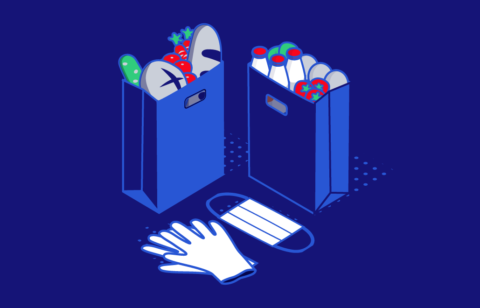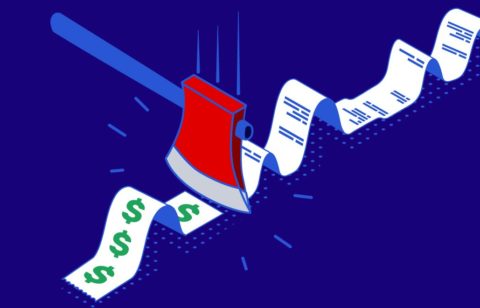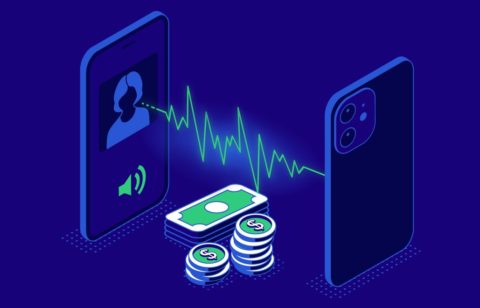Some people fail to realize the real value of having saving goals. These goals will motivate you to save more money despite the multiple things that you have to spend on. If you are not yet aware of it, saving can literally save your life. It brings a lot of benefits – and not just on your financial position. It can help you live a healthier life that is free from anxiety.
According to the data from CNBC.com, the majority of Americans have less than $1,000 in their savings account. The data that came from the Go Banking Rates website also revealed that 34% of these people do not even have any savings. This is a cause for concern because these people are one emergency away from a financial crisis. Even if you live within your and all your expenses are paid off, that is not a guarantee that your financial situation is secure.
There are so many things that can happen. You can lose your job and compromise your income completely. One accident or trip to the emergency room can lead you into debt. These are only some of the things that can push your finances over the edge.
This is the reason why having adequate savings is very important. It can save you from a lot of headaches in the future.
5 tips that will help you reach your saving targets
Of course, setting saving goals is the easy part. Making sure you reach that goal is the hard part. The challenge is avoiding the mistakes that will keep you from saving more.
To help you with the task, here are 5 things that you can do to make savings easier to accomplish.
Save immediately after you get your paycheck. If you remove it immediately, you will not really miss it. You would not feel the compulsion to spend something that it no longer there. That is something that will really make saving less painful. Sometimes, when you know that you have the extra money for saving, you will have all sorts of excuses to spend it. Get rid of the temptation by putting it in your savings account as soon as your paycheck comes in.
Automate your savings. This is the best way to do the first tip – you have to automate your savings so you will have no hand in the transaction. If some time passes by, you might not even remember that a certain amount of money is being taken from your paycheck and transferred to your savings account. It can be a pleasant surprise to see that you have amassed a huge amount of money on your account. According to an article from AOL.com, some people need to take action about their savings. Sometimes, they have all the best intentions to save but it is not successful because they lack the action to support their intent. This is where automating your savings can come in handy. Lack of action will not really be an issue in helping you save because you have set up an auto-transfer to for your saving goals.
Commit to save a percentage of your income. While setting a specific amount like $50 or $100 will help you reach your saving goals, a percentage may be better when it comes to maximizing your saving potential. If you suddenly get a bonus, you can use a portion of that money to add to your savings without feeling guilty about spending some of it.
Track where your money goes. Tracking your spending will also be something that can help your saving goals. You can see where your income is going and the areas where you can spend less so you can increase your savings more. Not only will this benefit your savings, this can also help you establish the right habits that can improve your financial position.
Change your mindset about money. Finally, you need to change your mindset about saving. Stop thinking that saving will deprive you of a great life now. While it is a must that we live in the moment, that does not mean we should be irresponsible about our future. You need to think about how you can take care of your future self. You owe it yourself to make sure that your future will not be lacking. One mistake can compromise your future. That is why you need to be careful about our decisions right now.
Saving is all about paying yourself first
In changing your mindset about your saving goals, you need to think of it as paying yourself. While you may not get that expensive vacation right now, that is a small price to pay if it means you can own your house. Even if you do not get those designer jeans or that new pair of shoes, that should be okay if it means you can set yourself up for a great retirement. What you are doing is delaying your gratification.
Here are the many ways that fulfilling your saving goals can be considered a payment to yourself.
- It sets you up to be financially independent. This financial position means you do not need to work for a living just to finance your lifestyle expenses. Isn’t that a great life to have? You do not have to wake up each morning worrying about where you will get the money to spend for you and your family’s needs. You have money set up that can help you finance your chosen lifestyle.
- It makes early retirement possible. When you are financially independent, you are actually making early retirement possible. At least, you can choose to do this or you can continue to work just so you have something to do. This will not only keep you busy, it will also allow you to grow your wealth further. According to Investopedia.com those who are between the ages 55 and 64 years only have $104,000 saved up for retirement. If you follow this trend, you will make early retirement impossible. You need to set your saving goals so you end up with a higher amount that will make early retirement a reality.
- It gets you ready to grab financial opportunities. When you have savings, you are giving yourself the power to be able to grab financial opportunities. Of course, we mean investments. When there is a chance to invest your money, you can grab it without worrying about where you will get the money.
- It makes you less anxious about the unexpected. This is a non-financial benefit that is no less valuable. When you are meeting your saving goals, you are more confident about your finances. That can lessen the money stress that can affect your health.
- It allows you to enjoy unplanned splurges without going into debt. This is a treat that those with adequate savings can have. As long as it is not abused, you can actually make unplanned splurges without feeling guilty. When a great furniture or appliance goes on sale, you can grab that chance to get a great deal without going into debt.
Saving goals oftentimes involve a large amount of money that will take some time for you to complete. Sometimes, the struggle to meet the goal poses a lot of temptations. Here is a video from the Bank of America to help you meet your saving targets.
Common questions about saving goals
Question: What are saving goals?
Answer: Saving goals are targets that you can only get if you save your money. These are goals that require a certain amount of money.
Question: What are examples of great saving goals?
Answer: Any saving goal that can help you improve your financial future is a great one. Things like saving up for a down payment so you can buy a house that will increase your personal net worth is one. Saving to get a master’s degree without borrowing student loans is also a great saving target. Things that can improve your well-being is also a good saving goal.
Question: How can you set realistic saving goals?
Answer: The key is to know your financial capabilities. Check your income and your current expenses. Setting a high saving goal may force you to work hard for it. But if it causes you stress, then you may want to lower your target a bit. You want the journey towards reaching your goal to be pleasant. Otherwise, you might get frustrated and give up on the goal entirely.
Question: How can you reach saving goals fast?
Answer: This depends on your ability to save. You can reach it fast if you can contribute more to your savings each month. Of course, that would entail a lot of spending sacrifices.
Question: What saving goals should I have?
Answer: It depends on the type of future that you want to have. Make sure your goals will lead you towards a life that you want to live. That will give you the motivation to reach your saving goals.







